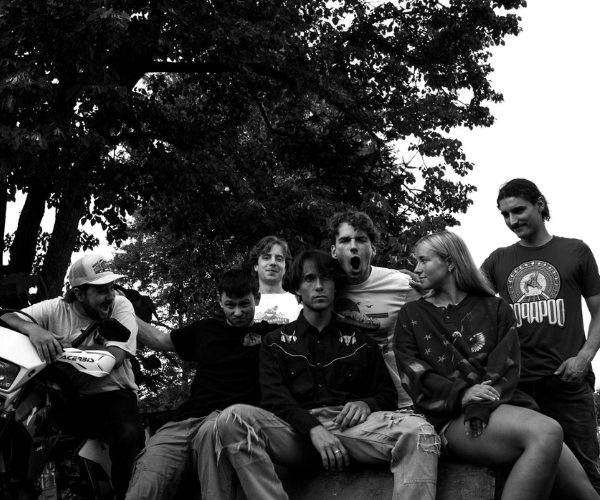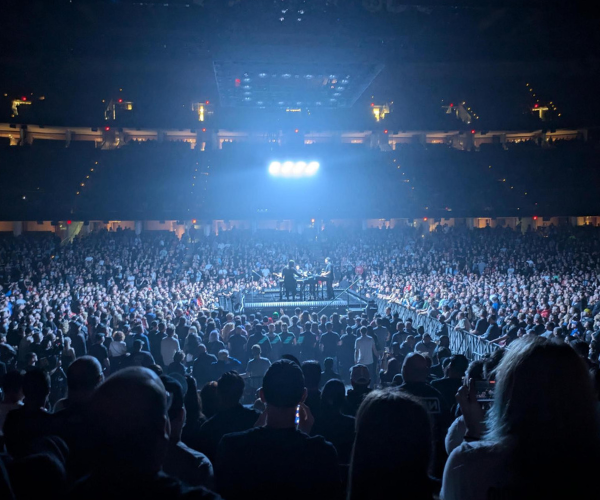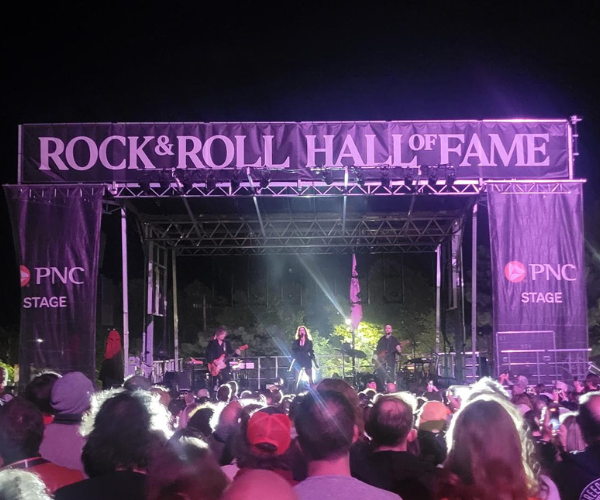Warren Zanes: When did you first hear Lead Belly's music?
Robert Plant: I was at school, a grammar school in a town which had quite a lot of folk clubs. It was probably around 1962, and the town had a very big art college. And the art college attracted a kind of bohemian set of students and lecturers, and the spin-off from that was this: In what was normally a kind of blue-collar area, you had this little pocket of existentialist poetry and jazz, a folk scene. The very first acoustic blues bands that I got involved with — when I was playing washboard, before I even thought about singing — came out of such a scene.
WZ: What was it that drew Led Zeppelin to Lead Belly?
RP: I think the power of his delivery. I think his gusto. Some of the performances are so vivid. "Gallows Pole" [which Zeppelin covered] had so much energy, and the 12-string [guitar], the way that he played the 12-string, was really just so committed, the rhythms were really superb. "Gallows Pole" is an English song which made the journey across the sea, along with a lot of other songs that were brought by the Pilgrim fathers and passed on and on and on. America's songs are songs of the immigrants, so a lot of the stuff that has a story and a refrain would have come from English or Scottish or Irish folk music of some kind. Some friends of mine who are in a group called Fairport Convention, who deal almost solely in old, ancient English music, they reckoned it was an Elizabethan tune and it was sung regularly because of the irony of the lyric, a bit like [the song] "Frankie and Johnny," you know.
WZ: Lead Belly is one of the most mythologized characters in American music. And I would say that Led Zeppelin is also quite mythologized. Is this tendency to mythologize a good thing for the music itself?
RP: Yeah, I think it is. When I was a young teen-ager and very impressionable, I was completely bewitched by the idea of listening to the lyrics and delivery of black music. It was so far removed from anything that I could relate to as a kid. And also the lifestyles and the kind of cloudy, smoky, mysterious stories, which were always pumped up on the sleeve notes of some now-faded 12-inch LP — these musicians were made into kind of traveling highwaymen. The whole idea of the musician's life being exotic and some kind of romantic, dangerous life always appealed to me. And I think that possibly is no longer there. With popular music now there's just a little bit too much access to the artists. And the reality is — with most artists, singers, creators and entertainers — there are great flashes of a wealth of talent and mystique, but most of the time it's pretty humdrum living. And I'm sure it was just so for Robert Johnson as it was probably for Axl Rose, you know. You have times when there are stories to be written about and you have other times when it's pretty flat. So the more remote and the more obscure the artist the better, really. Then the imagination works around a vocal performance or a guitar performance — the intrigue in knowing little and just hearing a performance is just so much more of a penetrating experience, I think.
WZ: I was struck by Nirvana's cover of "Where Did You Sleep Last Night." It's always reminded me of the fact that Lead Belly is not a household name, but he's almost always in circulation with the musicians themselves. What lessons might Lead Belly be able to teach the next generation of music makers?
RP: Lead Belly's work is like a treasury. It's like a kind of casket of songs. Some of them are English folk songs. Some of them are songs from the streetcorner juke joint. Some of them are songs that accompanied dancing. I find that Lead Belly is like a catalyst. He sort of spills across the musical landscape and takes you into all sorts of little areas and nooks and crannies of music that have never been really opened up to a contemporary generation.
WZ: You're going to be sharing the stage with a few different people at this year's American Music Masters, including Alison Krauss and Los Lobos. Can you tell me something about your interest in these two acts?
RP: Los Lobos, their music is a mélange and a very natural L.A. sound. I've been an admirer of their music over the years and I find that the kind of flexibility that they have, mixing their brand of rock 'n' roll with the music of their fathers, is something quite special. Alison Krauss on the other hand, I'm familiar with her work and with her voice and with the kind of pureness of her tone. I have a couple of Union Station CDs and heard her work on "Down from the Mountain" and on "O Brother, Where Art Thou?" And at one point, about two or three years ago, we were talking with Bill Flanagan from VH1 about the idea of performing together on a program called "Crossroads," which would have been quite intriguing because our music, at least on paper, seems to be quite a way apart. But her voice is so pure and sweet. I'm really looking forward to singing with her. I don't do many duets.
WZ: When did you first come to Cleveland and what are your recollections of the place?
RP: I don't know when I came to Cleveland. I came, I guess, in 1969. I can't remember where I played, but I know that it was a long time ago and I know that Peter Grant, the manager of Led Zeppelin, he looked at us in the dressing room and said, "If you blow it in Cleveland, you're finished. Don't even start." I said, "What?" I just didn't realize how — I suppose it must be because of Alan Freed and the whole idea of rock 'n' roll actually really kicking off in Cleveland itself — how much it meant. We understood about going to San Francisco because of the effect the music had had on us and the whole West Coast surge. We knew about Chicago and we knew that the Chess label and so many amazing artists had come out of it. But we didn't understand the significance of Cleveland, that so many people had gone through Cleveland and if you didn't leave an impression, you might as well just pack up and go home.



